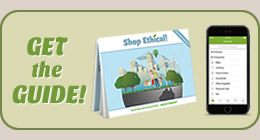Can you live with zero rubbish for one week?
It’s a basic concept yet maybe not-so-basic to implement.
One way we’ve done this is a “Zero Waste Week” trial, where together we attempt to reduce our household rubbish for seven days.
Exactly how you’ll change your waste output is up to you. For some people this will mean not having anything that can’t be recycled in curbside collections, while for others it may mean no packaging waste including recyclables. For all, it means preparation as the things we buy affect the rubbish we end up with.
In 2009 a group of 6 households in Melbourne took on the Zero Waste Week trial. Their challenge week discoveries are archived here.
Getting started
- First conduct your own self-audit: inventory your bins! Look at what comprises your present waste.
- Explore possible means of reduction and alternatives — look at easily changed things, things that will be harder to change, things that are almost impossible to change.Alternatives include alternative products with minimal packaging and alternative means such as food coops, buying groups, etc.
The more the merrier
It’s always easier to change your patterns when friends are doing the same thing. Challenge your neighbours and friends to join you. Have a meeting at your house to discuss:
- the time of the trial (when)
- the breadth of the trial (different for different households)
- the reason/rational behind the trial (why do it?)
- the process — how will we do the week? will we share meals? maybe just at the start and end
- how will we document successes & shortfalls?
These are three key points we can share from our previous “100 Mile Trial” week which we will apply here:
- A trial — It is an experiment for one week, so it’s not going to kill anyone if we don’t make it or do fall short in some way, yet at the same time given that it is only a week, we should ‘go hard’ and see what we can achieve.
- Doing it together — Many people have tried this as an individual or household. It is quite a bit of hard work but all becomes easier when treated as a community exercise where we share discoveries together, work together, and are challenged together. We are supporting one another in learning good ways of living.
- Preparation – This is vital if we are going to know what we throw out and not get any unexpected suprises. This will include a pre-challenge audit, and systematic seeking of alternatives.
Good luck!



